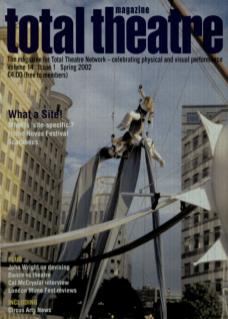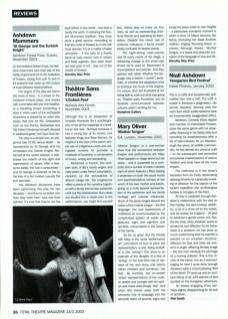Mother Tongue is a one-woman show that sits somewhere between theatre and performance art. Mary Oliver appears on stage alone but not alone – she is supported by a computer and a number of video monitors, each of which features a Mary playing a projection (in both the visual media and psychoanalytical senses of the word) of her own mother and sisters, giving us a multi-layered representation of the performer and her family heritage and cultural influences. Much of the piece hinges around the notion of the mother tongue – the first language, the root experiences of childhood as communicated by the complicated system of words and gestures, signs and signifiers and symbols, encountered in the bosom of the family.
So far, so good. But the trouble with Mary is the usual ‘performance art' conundrum of how to pitch the representation: is she being herself or is she 'acting'? The show is an example of the dangers of a fear of ‘acting'. In her real-time role of narrator of her own story, she seems rather hesitant and somehow 'not real'. By contrast, her on-screen 'acted’ representations of her mother, sisters and younger self are spot-on and heart-wrenchingly 'real'. And when she moves away from the semantic role of language into the semiotic realm of sounds, sighs and songs the piece soars to new heights – a particularly wonderful moment is when a choir of Marys become her family (including her dead Scottish mother) singing ‘Amazing Grace' in unison. Although flawed, Mother Tongue is a brave and beautiful evocation of the language of love and life.

